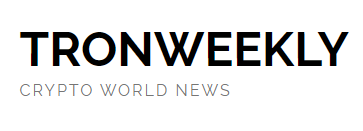You are here: Home / News / Crypto Crackdown? FDIC Docs Suggest Secret Deposit Limits

February 25, 2025 by Mishal Ali
Key Takeaways
- Newly released FDIC documents shed light on its interactions with crypto-friendly banks.
- Redactions raise questions about compliance with past lawsuit settlements.
- Calls for Congress to investigate deposit limits on crypto firms grow louder.
Custodia Bank CEO Caitlin Long has brought attention to newly released Federal Deposit Insurance Corporation (FDIC) documents that provide insight into the agency’s dealings with banks involved in cryptocurrency.
These 96 pages, made public without an official announcement, detail conversations between FDIC-regulated banks and the agency but were not linked to the ongoing Coinbase lawsuit. While the documents reveal frequent monthly discussions about crypto banking, fintech, and Banking-as-a-Service (BaaS), extensive redactions obscure key details.
1/ NEW FDIC DOCS released on Friday–8 new docs w/ 96 pages covering FDIC-regulated banks involved with #crypto, but not part of the Coinbase lawsuit. Looks like a mix of document types; reviewing now. h/t Joshua Rosenberg for flagging this on LinkedInhttps://t.co/PCty2yoycE
— Caitlin Long 🔑⚡️🟠 (@CaitlinLong_) February 23, 2025Long expressed gratitude to FDIC Acting Chairman Travis Hill for his commitment to transparency but noted that the nature of these documents raises critical concerns.
Some appear to contradict the FDIC’s prior legal commitments under the Operation Choke Point 1.0 (OCP1.0) lawsuit settlement, which prohibited the agency from influencing banks’ decisions on which customers they could serve.

Crypto Banking Oversight Raises Concerns
One of the most concerning takeaways from these documents is the potential violation of the FDIC’s OCP1.0 settlement. The documents suggest the FDIC engaged in direct discussions about specific crypto depositors actions that should have been avoided.
Moreover, internal memos reference verbal communications rather than written records, which may have violated the settlement terms requiring all such communications to be documented.
Long highlighted multiple instances where discussions on limiting crypto-related deposits were present. She pointed out that banks were allegedly advised to cap crypto deposits at an unspecified percentage of total deposits, likely 15%.
Since this restriction was reportedly conveyed verbally, it might not only breach the OCP1.0 agreement but also violate regulatory transparency laws, including the Administrative Procedure Act (APA).
The documents also indicate that regulatory oversight may have been excessive. Meetings between FDIC staff and banks reportedly involved disproportionately high numbers of regulators, with as many as three times more FDIC representatives attending than bank representatives.
Long compared this to recent congressional testimony suggesting that federal bank regulators often bury disfavored institutions in red tape.
Calls for Further Investigation
Long has urged both Acting Chair Travis Hill and Congress to provide further transparency on these findings. She called for the unredaction of the X% crypto deposit limit mentioned in the documents and an official investigation into how these restrictions originated. If confirmed, these actions could signal a deliberate effort to stifle the crypto industry’s access to banking services.
8/ LOOKY HERE–another one. The only way we're going to know what really happened with the X% limit on crypto depositors (probably 15%) is for Congress go down the line & ask each bank + their examiner under oath where that X% deposit limit came from. Factually, today's documents… pic.twitter.com/6gK7aZtPQ0
— Caitlin Long 🔑⚡️🟠 (@CaitlinLong_) February 23, 2025Related Reading | Bybit Recovers $1.4B in Stolen Etherum and Proves Full Reserves

 6 months ago
35
6 months ago
35




 English (US) ·
English (US) ·